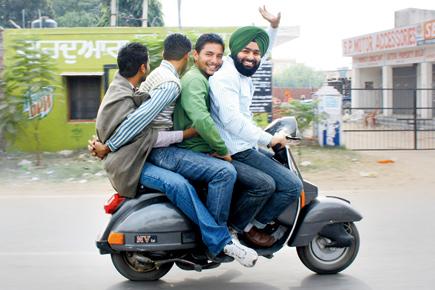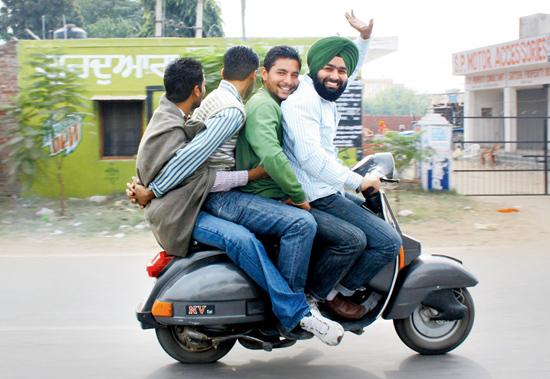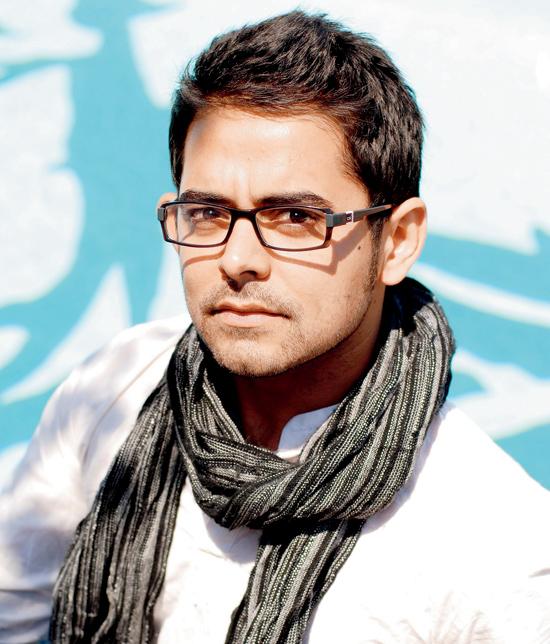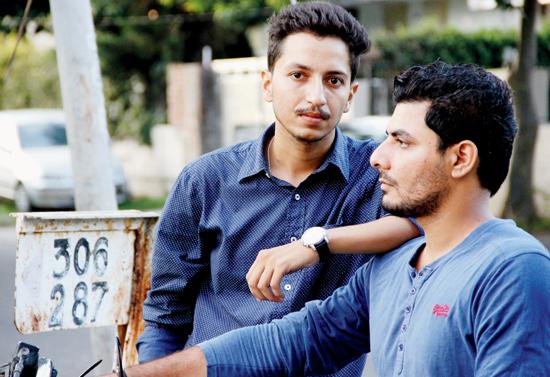Award-winning director Harjant Gill talks to Suprita Mitter about his 28-minute short film, Mardistan, the stereotypical Punjabi alpha male and the responsibilities and challenges that confront Indian men today

Mumbai Guide, Harjant Gill, Director, Mardistan, documentaries, Punjabi male
It’s a man’s world we say, while reading news reports of gang rapes and sexual violence against women across India. There are endless interviews and reproductions of real life incidents that show angry, violent men taking advantage of women. Most of us passionately hit the ‘like’ button on social media sites when we see feminist posts and open letters to celebrities, which is why when we heard about the subject of director, Harjant Gill’s documentary Mardistan, we sat up and took notice.
ADVERTISEMENT

A still from the film Mardistan, set in Punjab
Harjant Gill prides himself on being brought up by strong women. He is an assistant professor of anthropology at Towson University, Maryland and his 28-minute film takes a look at the urgent and widespread issues of patriarchy, son-preference, sexual violence, peer pressure and homophobia, in Indian society. Instead of showcasing the stereotypes of Indian manhood, the film features experiences of four men who are actively making different choices.
Excerpts from a chat with Gill
Q. How did you choose the subject for your documentary?
A. I’ve wanted to make a film exploring Indian manhood for a few years since I started my anthropological research on Punjab and Indian masculinities, but the recent reposts of sexual violence and gang rapes and the media/popular discourse on gender that followed these reports was unsettling, and served as a catalyst to start this project. There seems to be a complete refusal to talk about Indian manhood and masculinity in any critical way. We are told that to be a man is to “protect women’s honour” – I find these kinds of messages problematic. Instead, I think we, as a society, need to question the conditions and circumstances that produce men who enact such violence. I want us to move past that dualistic stereotype of the Indian man as either the protector or the rapist.

Q. Is there a problem with the Indian male being seen as the protector?
A. Yes. It makes you think of a woman as someone who needs to be saved. It also brings up questions about which women “deserve” to be saved and who is “not worth it”. I don’t think men should be put in a position to decide that.
Q. Why choose Punjab as the setting for your documentary?
A. Apart from the fact that I grew up in Punjab and that has been the field of my work and interest, I have always observed that Punjabi masculinity has been held up as an example. They are believed to be the warrior ‘jaths’ and the alpha males. In a 28-minute-film since I would be restricted to explore one community, I chose Punjab.

A still from Mardistan
Q. Who are the four characters in your film and what do they represent?
A. The four characters are ordinary Indian men who I met in the process of researching this documentary – who belong to different socio-economic backgrounds, and have different levels of education. One thing they all share in common is that they themselves at times seem uncertain about what it means to “be a man” – and their definition of mascu-linity differ radically from the stereotypical definitions of Indian masculinity that we read about or see on TV or in our movies. Each man represents a different aspect of Indian manhood that are often overlooked – coming of age, fatherhood and familial responsi-bilities, sexual discovery as well as sexual violence some men experience, breaking the cycle of violence and victim hood. Author Amandeep Sandhu grew up hearing his father being called ‘namard’ because he didn’t hit Sandhu’s schizophrenic mother. Gurpreet is a father of twin girls; unlike his own parents, he considers his daughters, a gift. Tarun is a student who takes his romantic cues from Yo Yo Honey Singh, to figure out what girls really want in a relationship. Dhananjay is gay but lives with his wife because if he divorced her, she would become a social outcast. He talks about what it is like to be gay in a working class society, which is not very aware of gay rights. Their experiences are shaped by trials and errors, as well as a commitment to live honest, open, emotionally present and loving lives, which takes a lot of courage.
Q. Was it difficult to get your subjects to talk about the topic?
A. We filmed nearly nine hours of interview footage over the past year (since summer 2013). The real challenge was condensing these materials down to 28-minute time frame specified by Public Service Broadcasting Trust. Most of my subjects spoke openly and eloquently about what it means to be a man in our society. For Tarun, the young university student who talks about the pressure to lose his virginity, the whole interview experience was revelatory. As I asked him a question, I could tell that this was perhaps the first time he had really contemplated and reflected on popular ideas about what it means to be a man.
Q. You’ve included the views of social activist Nandita Menon in the film. Why do her views matter?
A. I find the fact that there is a woman who is an expert on the subject of masculinity, interesting. It is important that an activist viewpoint is heard to provide a context for these men’s stories.
On: Today, 5 pm onwards
At: Auditorium (above canteen), Gate 2, Godrej Industries, Vikhroli (E).
Cost: Free (RSVP required)
Email: indiaculturelab@ godrejinds.com
 Subscribe today by clicking the link and stay updated with the latest news!" Click here!
Subscribe today by clicking the link and stay updated with the latest news!" Click here!






